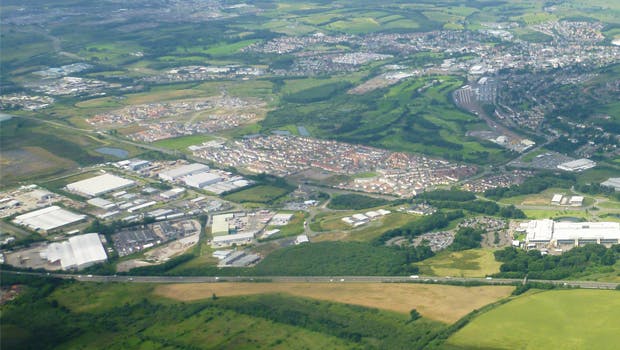How abolishing APD in Scotland will impact business aviation in the UK
New powers given to Scotland will allow the Edinburgh parliament to abolish Air Passenger Duty. This will impact the private jet industry in addition to airline travel.
If APD in Scotland is abolished, holidaymakers in the North of England will be able to knock off hundreds of pounds off the cost of a family holiday next summer, by choosing to fly from Glasgow or Edinburgh, instead of Newcastle or Teeside on the English side of the border.

Low cost airlines are sure to move routes from England to Scotland to support the demand. This is good news for Scottish aviation and the thousands of related support jobs, but not so good for the rest of the UK industry who will surely lose competitive advantage.
Air Passenger Duty is also payable on private jet flights from the UK (see APD On Private Jet Flights). And on the face of it, most will assume that the increase in cost (between £26 and £376 per person depending on aircraft and distance) made by APD will not encourage private jet customers to change their flights to an airport further from their home. However this is a mistaken view – business aviation will see an impact.
Not so much due to passengers choosing to depart from a Scottish airport to lower their costs – though we may well see that start to happen.

But in addition to passengers booking private jet departures from the UK, each month hundreds of transatlantic private jets use UK airports to refuel between the States and Europe, the Middle East and Asia. These refueling stops are called tech stops by pilots and private jet operational staff.
Aircraft operators choose where to make their tech stop based on turnaround time and cost. The stop should be no more than 30 minutes if the FBO is well-prepared for the stop. The costs incurred are fuel, airport and handling fees plus any relevant departure tax. The income from these fuel stops are an important revenue stream for UK airports and FBOs.
For a non-UK aircraft operator paying APD is a difficult process. It involves having a UK representative and filling out complicated tax forms (submitting flights individually in many cases) as well as juggling extra accountancy payments.
So why would a aircraft coming from the USA refuel in England when stopping in Scotland is not only cheaper (avoiding APD) but much less of an administration burden?
A final decision will not be made until after a UK parliamentary election in May next year, when the biggest transfer of powers to Scotland from the United Kingdom will take place, since the introduction of the Scottish parliament in 1999.
So while in Scotland the move to abolish APD is being celebrated as a potential boost for the country’s local economy and connectivity, I am aligned with most in the UK travel and aviation industries who believe APD should be abolished for the whole of the UK. Mark Tamzer, CEO of ABTA, warned of an “uncompetitive and damaging situation” should this not take place.
To find out how APD affects your private jet flight from the UK, contact us or speak to our Flight Team (24 hours) on +44 1747 642 777
Related content

Air Passenger Duty on private jet flights

Chancellor gives date for introducing APD to private jet flights



